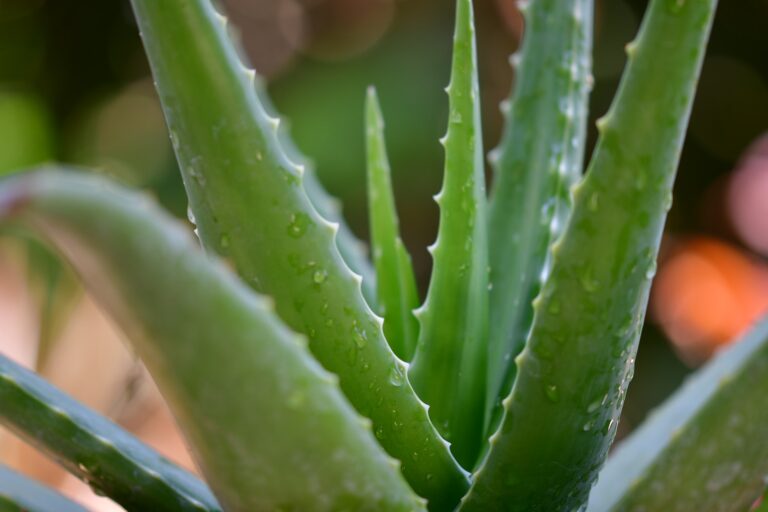Living with eczema can be a constant struggle, with its persistent itchiness and discomfort. However, the fascinating potential of natural remedies offers hope and relief for those affected by this skin condition. It’s especially hard watching a child suffer from eczema, and more natural options can be preferable for their very delicate skin. There are some remarkable remedies for eczema you need to try.
Understanding Eczema
Eczema, or atopic dermatitis, is a chronic skin condition characterized by inflammation and irritation. It causes the skin to become red, itchy, and dry and often leads to the formation of blisters and scales.
Types of eczema and their characteristics
There are several types of eczema, each with its unique characteristics. Atopic dermatitis is the most common form and often begins in childhood, while contact dermatitis is caused by direct contact with irritants or allergens. Other types include nummular dermatitis, seborrheic dermatitis, and dyshidrotic eczema.
The Unseen Factors Behind Eczema
Genetic predisposition and family history
Eczema is often influenced by genetic factors, making individuals with a family history of the condition more susceptible to developing it. Certain gene mutations can compromise the skin’s barrier function and increase the likelihood of inflammation and itching.
Environmental triggers and irritants
Various environmental triggers can exacerbate eczema symptoms. These include exposure to irritants such as harsh chemicals, allergens like pollen or pet dander, extreme temperatures, and dry air. Stress, hormonal changes, and certain foods may also contribute to flare-ups.
Traditional Treatment Options
Over-the-counter creams and ointments like hydrocortisone are commonly used to alleviate itching and reduce inflammation. These products typically contain corticosteroids or antihistamines to provide temporary relief. They can work quite efficiently but are not a natural solution.
Prescription medications and their efficacy
In more severe cases, dermatologists may prescribe stronger topical corticosteroids or immunomodulators. These medications aim to suppress the immune response and reduce inflammation. Oral antihistamines, antibiotics, and systemic corticosteroids may also be prescribed, depending on the individual’s condition.
The Rise of Natural Remedies
Exploring the resurgence of natural remedies
Natural remedies have gained popularity in recent years due to their potential effectiveness and minimal side effects compared to traditional treatments. Many people are turning to nature to discover alternative solutions for managing eczema symptoms.
Advantages of choosing natural remedies over traditional treatments
Choosing natural remedies offers several advantages. These remedies often contain fewer chemical additives, reducing the risk of adverse reactions. Additionally, natural remedies can provide nourishment and support for the skin, promoting overall skin health and improving its ability to heal.
Nature's Bounty: Remarkable Remedies for Eczema
The Power of Moisturization
Jojoba oil: Nature’s moisturizing miracle
Jojoba oil, derived from the seeds of the jojoba plant, is a remarkable moisturizer. Its chemical composition closely resembles that of human sebum, making it easily absorbed into the skin. Jojoba oil restores moisture and forms a protective barrier, reducing water loss and preventing dryness.
Shea butter: Nourishing and soothing the skin
Shea butter, extracted from the nuts of the shea tree, is rich in essential fatty acids and vitamins. It provides deep hydration and nourishment, soothing inflammation, and promoting skin cell regeneration. Shea butter also possesses natural anti-inflammatory properties, helping to alleviate eczema symptoms.
Herbal Heroes for Eczema
Calendula: Nature’s anti-inflammatory gift
Calendula, also known as marigold, is a powerful herb with anti-inflammatory and antimicrobial properties. It can effectively reduce redness, itchiness, and swelling associated with eczema. Calendula is often used in creams, ointments, or infused oils to soothe irritated skin.
Chamomile: Relaxing the skin and mind
Chamomile has been used for centuries for its calming and healing properties. Its anti-inflammatory and antioxidant effects make it suitable for soothing eczema-prone skin. Chamomile can be applied topically or consumed as a tea to promote relaxation and reduce stress, which can contribute to eczema flare-ups.
Unlocking Essential Oils' Potential
Lavender oil: Calming irritation and promoting healing
Lavender oil possesses both anti-inflammatory and antimicrobial properties, making it a valuable remedy for eczema. It can soothe inflamed skin, reduce itching, and accelerate the healing process. Lavender oil can be diluted and applied topically or added to bathwater for a relaxing and therapeutic experience.
Tea tree oil: Combatting infection and reducing inflammation
Tea tree oil has powerful antimicrobial properties, effectively combating potential infections in eczema-prone skin. It also helps reduce inflammation and itchiness. Tea tree oil should always be diluted before applying to the skin to prevent irritation.
Harnessing the Healing Power of Aloe Vera
Aloe vera gel: Soothing and hydrating the eczema-ridden skin
Aloe vera gel is a popular natural remedy known for its soothing and hydrating properties. It can provide relief from itching and inflammation, promoting the healing of eczema lesions. Aloe vera gel can be applied topically, directly to the affected areas.
Aloe vera juice: Internal benefits for eczema management
In addition to topical application, consuming aloe vera juice can also offer internal benefits for managing eczema symptoms. Aloe vera juice helps support healthy digestion and may contribute to overall skin health by reducing inflammation from within.

The Marvels of Oatmeal and Dead Sea Salt
Oatmeal baths: Relieving itchiness and restoring skin health
Oatmeal baths have long been used to soothe irritated skin. The high concentration of natural compounds, such as beta-glucan, in oatmeal helps to moisturize the skin and reduce inflammation. Taking oatmeal baths can provide relief from the intense itching and restore the skin’s health.
Dead Sea salt: Rejuvenating the skin and reducing inflammation
Dead Sea salt is rich in minerals that can benefit eczema-prone skin. Soaking in a bath with Dead Sea salt can help hydrate the skin, reduce redness and inflammation, and support the skin’s natural healing process. The minerals in Dead Sea salt have a rejuvenating effect on the skin, leaving it feeling smoother and healthier.

Nutritional Support for Eczema Relief
Introduction to an anti-inflammatory diet
An anti-inflammatory diet focuses on consuming foods that help reduce inflammation in the body. Incorporating these foods into your diet may provide relief from eczema symptoms.
Foods to include and avoid for eczema management
Including foods rich in omega-3 fatty acids, such as fatty fish like salmon or chia seeds, can help reduce inflammation. Avoiding processed foods, added sugars, and known trigger foods like dairy or gluten may also help manage eczema symptoms.
Superfoods for Super Skin
Avocado: A skin-loving powerhouse
Avocados are packed with healthy fats, vitamins, and antioxidants that promote skin health. Their high content of monounsaturated fats helps keep the skin moisturized and flexible, reducing dryness and itchiness.
Fish rich in omega-3 fatty acids: Reducing eczema symptoms
Fatty fish, such as salmon, mackerel, or sardines, are excellent sources of omega-3 fatty acids. These fatty acids have anti-inflammatory properties that can help alleviate eczema symptoms and improve overall skin health.

The Potential of Probiotics
Probiotics and their impact on eczema
Probiotics are beneficial bacteria that can support the immune system and improve gut health. Studies suggest that certain strains of probiotics may help reduce the severity and frequency of eczema flare-ups.
Incorporating probiotics into your diet for eczema relief
Including probiotic-rich foods, such as yogurt, sauerkraut, or kefir, can help enhance the digestive system and potentially improve eczema symptoms. Probiotic supplements may also be beneficial, but it’s important to consult with a healthcare professional before starting any new supplementation. Go here for another fantastic treatment for eczema
Mind and Body: Holistic Approaches to Eczema
The link between stress and eczema flare-ups
Stress can trigger or exacerbate eczema symptoms. Finding effective stress management techniques can help reduce flare-ups and promote healthier skin.
Mindfulness and meditation for reducing stress and eczema symptoms
Practicing mindfulness and engaging in meditation can help calm the mind, reduce stress levels, and alleviate eczema symptoms. Focusing on the present moment and incorporating relaxation techniques into daily routines can contribute to overall well-being.
Physical Activities for Eczema Relief
Low-impact exercises suitable for individuals with eczema
Engaging in low-impact exercises, such as yoga, swimming, or gentle stretching, can help improve blood circulation and increase oxygen flow to the skin. Regular physical activity can also reduce stress, which may indirectly improve eczema symptoms.
Benefits of regular physical activity for overall skin health
Regular physical activity promotes overall skin health by increasing blood flow, promoting the transportation of nutrients to the skin, and supporting the elimination of toxins. Healthy skin is better equipped to handle eczema and other skin conditions.
Gentle Skincare Routine for Eczema-Prone Skin
Choosing the right cleansers and moisturizers
When selecting cleansers and moisturizers, opt for gentle, fragrance-free products specifically formulated for sensitive skin. Look for ingredients like ceramides, which help strengthen the skin barrier, and avoid harsh chemicals that may irritate. Even better still, you can make your soaps and moisturizers…which we will expand upon in a future post.
Incorporating protective measures into your skincare routine
Protecting the skin from irritants and maintaining optimal hydration throughout the day can minimize eczema flare-ups. Consider using cotton clothing, applying natural sunscreen, and avoiding excessive hot showers or baths, which can strip the skin of essential oils.
Clothing Choices for Eczema Comfort
Fabric options to minimize skin irritation
Choosing soft, natural fabrics like cotton or bamboo can help minimize skin irritation caused by friction. These fabrics allow the skin to breathe and reduce the risk of further inflammation.
Tips for dressing to avoid exacerbating eczema symptoms
Avoid tight-fitting or scratchy clothing, which can irritate the skin further. Opt for loose-fitting garments made from breathable materials to prevent excessive sweating and promote airflow.
When to Seek Professional Help
Determining the need for medical assistance
If your eczema symptoms persist or worsen despite trying natural remedies and self-care measures, it may be time to seek professional help. A dermatologist or specialist can provide a more accurate diagnosis and recommend appropriate treatment options.
Finding the right dermatologist or specialist
When seeking professional help, it’s important to find a dermatologist or specialist experienced in treating eczema. Asking for recommendations, researching online reviews, and considering their expertise and approach can help find the right healthcare professional for your needs.
The Journey to Eczema Healing: Add Your Real Stories of Triumph
Sharing personal experiences and testimonials of individuals who have successfully managed or overcome eczema can provide inspiration and reassurance to others facing similar challenges. These stories of triumph serve as a reminder that it is possible to find relief and improve quality of life. Please feel free to comment on your own experiences with eczema.
Frequently Asked Questions
While there is currently no known cure for eczema, it is possible to effectively manage the condition and keep flare-ups under control. Following a comprehensive treatment plan and making lifestyle adjustments can greatly improve symptoms and enhance overall skin health.
Natural remedies can be safe and effective for children with eczema, but it’s important to consult with a pediatrician or dermatologist before trying any new remedies. Children’s delicate skin requires special care, and professional guidance can ensure the best approach is taken.
Preventing eczema flare-ups involves identifying and avoiding triggers, maintaining a consistent skincare routine, moisturizing regularly, and managing stress levels. It’s crucial to observe patterns and identify factors that contribute to flare-ups to establish an effective prevention plan.
While diet plays a role in managing eczema, it is not a standalone solution. Proper skincare, stress management, and other lifestyle factors are equally important. However, following an anti-inflammatory diet and incorporating skin-healthy foods can support overall eczema management.
Eczema is not contagious. It cannot be transmitted from person to person through physical contact. However, certain aspects of eczema, such as visible skin lesions or open sores, may increase the risk of secondary infections if proper precautions are not taken.
Embracing the wonders of nature in the journey to defeat eczema can be a transformative experience. By exploring and utilizing the remarkable remedies provided by nature, individuals can find relief, improve their skin health, and regain control over their lives. Remember, what works for one person may not work for another, so it’s essential to find the remedies and treatment options that work best for you.


